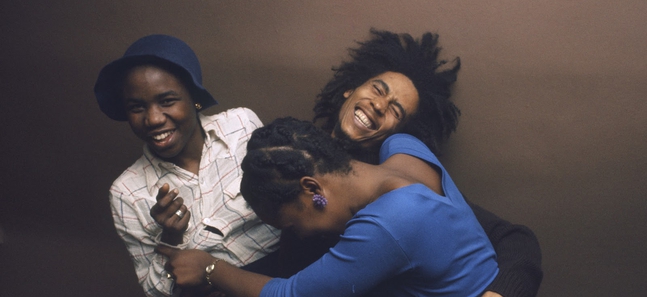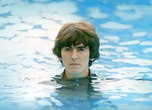Marley
Musical messiah, serial adulterer: a warts-and-all portrait of the reggae legend

© SHANGRI-LA ENTERTAINMENT LLC AND TUFF GONG PICTURES LP 2012
Posted: Tue Aug 28 2012
Director: Kevin Macdonald
Time Out rating: 
Japanese title: Bob Marley: Roots of Legend
When the opening credits of Kevin Macdonald’s long-gestating Bob Marley bio-doc open with ‘A Tuff Gong Production’ – the name of Marley’s record label – viewers could be forgiven for fearing the worst. From Kingston, Jamaica to Kingston Upon Hull, from Boston to Brazzaville, Marley has been held in mystic reverence by millions of fans since his death in 1981. But those who worship the man and his music tend to overlook the fact that he was an adulterer who fathered 11 children by seven women, that his attitude towards those women was far from progressive and that his treatment of his children was equally problematic.
Marley could easily have been a simplistic hagiography, a film which celebrated the legend and not the far more interesting and divisive character behind it. But mercifully, while Macdonald has nothing but praise for Marley as a musician and political figurehead, he is willing to lay out the bare facts, warts and all.
Though less exhaustive than Martin Scorsese’s recent Bob Dylan and George Harrison docs, Marley follows much the same template, mixing interviews, archive material, concert broadcasts and new footage of key locations in the story. Macdonald scores over Scorsese, however, in his choice of interviewees: rather than a parade of self-serious musicians and commentators, Marley’s circle of associates includes eminently watchable characters like mad-bearded studio guru Lee ‘Scratch’ Perry, who is depicted burning rubbish in the driveway of his Alpine home, and loveable rogue Neville Livingston, aka Bunny Wailer, whose dewy-eyed memories of Marley’s musical youth are steeped in nostalgic emotion.
The big flaw in the film – and it’s perhaps unavoidable – is that, despite interviews with many of Marley’s closest family, including wife Rita, son Ziggy and longtime girlfriend Cindy Breakspeare, we never truly get a sense of his personality. Memories of him are conflicting and contradictory: to some he was a holy man, to others a scoundrel, and so the portrait which emerges shifts and fragments, reshaped with each new piece of information. By the end, Marley remains as much of an enigma as when it began.
But there’s a huge amount to enjoy, from footage of Haile Selassie’s visit to Jamaica in 1966 to some barnstorming live material, from wry recollections of Marley’s absentee father, a self-important ex-military official, to remarkable accounts of Marley’s gig at the Zimbabwean independence rally with Robert Mugabe and Prince Charles in attendance. Though longtime followers of Marley may find themselves surprised or even shocked by some of the revelations Macdonald offers, such an honest depiction can only contribute to a deeper appreciation of this remarkable artist.
Marley at select cinemas nationwide on September 1
Tweets
- About Us |
- Work for Time Out |
- Send us info |
- Advertising |
- Mobile edition |
- Terms & Conditions |
- Privacy policy |
- Contact Us
Copyright © 2014 Time Out Tokyo














Add your comment